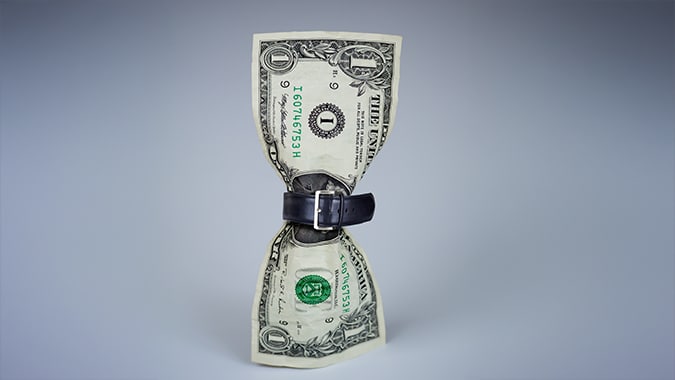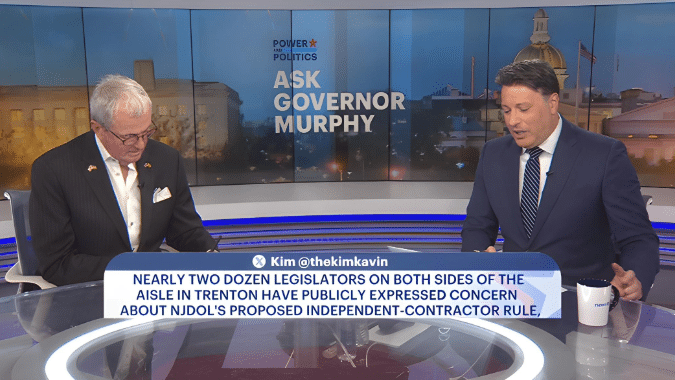After peaking in mid-2022, inflation-adjusted tax revenue collections across the U.S. have been declining, largely because of the end of the pandemic-era revenue wave and widespread adoption of tax cuts, according to research released recently by Pew Charitable Trusts.
In fiscal year 2024, inflation-adjusted tax revenue fell in 40 states, compared to previous year collections. Consequently, tax revenue now trails its 15-year growth trends in 38 states, including New Jersey.
Nationally, total state tax collections were 2.8%, or $10.4 billion, lower than the 15-year trend at the end of Q2 2024 after adjusting for inflation. In New Jersey, state tax receipts, adjusted for inflation, were 3.3% lower than its 15-year trend.
The states with the weakest tax revenue compared with their long-term trends were Oregon (20.1% below trend), Minnesota (9.1% below), and Iowa (6% below). Oregon’s deviation can be explained, in part, by its kicker rebate, which returned $5 billion in surplus fiscal 2023 funds to taxpayers. Iowa and Minnesota both implemented significant tax cuts that lowered collections.
Twelve states bucked the national trend and remained above their 15-year trajectories: Alaska (118.5% above trend), New Mexico (16.5% above), Wyoming (10.9%), Nevada (4%), Rhode Island (3.7%), South Carolina (3%), Montana (2.7%), North Dakota (2%), Texas (1.7%), Alabama (0.6%), Florida (0.5%), and Nebraska (0.2%).
Alaska, New Mexico, and Wyoming benefited from a boost in severance tax revenue related to historically high energy prices in 2022 and 2023.
Justin Theal, senior officer with Pew’s Fiscal 50 project, wrote on Jan. 9 that approximately 75% of total state tax revenue comes via levies on personal income, general sales of goods and services, and corporate income. Corporate taxes tend to be the most volatile revenue source.
During the second quarter of 2024, corporate income taxes outperformed their 15-year growth trends in 34 states, however, New Jersey bucked this trend and was among the 12 states where corporate tax revenues under-performed.
Corporate tax receipts under-performed trends in: Indiana (24.7% below trend), Oklahoma (23.4% below), New Jersey (11.8% below), Connecticut (8.2% below), Mississippi (5.6% below), Minnesota (3.8% below), Massachusetts (3.2% below), Tennessee (1.2% below), Pennsylvania (1.2% below), Illinois (0.9% below), Wisconsin (0.2% below), and New Hampshire (0.2% below).
Among the 34 states with above- trend corporate tax performance: Alaska (+218.3% above trend), New Mexico (124.9% above trend), Nebraska (100.6% above trend), and Ohio (100.2% above trend).
Personal income tax revenues fell short of the 15-year trend in all but four states. In New Jersey, personal income tax receipts were 9.5% below trend, which was slightly better than the national average of 11.9% below-trend.
Personal income tax revenue was furthest above its long-term trend in Washington (+238.4%) and furthest below in Tennessee (−97.8%).
General sales tax collections were 0.04% above 15-year trends as of the second quarter of 2024. Of the 45 states that impose this tax type, 26 had collections that outperformed long-term trends, ranging from 13.3% above trend in Wyoming to less than half of a percent above in New Jersey (0.02%).
General sales tax revenue underperformed its long-term trend in 19 states, ranging from 6.7% below trend in Virginia to 0.9% below in South Dakota and Oklahoma.




